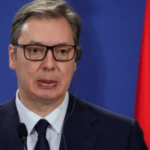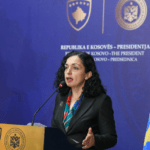In the digital age, the battleground for political influence and national identity has expanded far beyond traditional media and diplomacy. A significant front in this ongoing struggle involves the utilization of social media platforms for the dissemination of propaganda, misinformation, and the shaping of international narratives. One of the most contentious and deeply rooted conflicts in Europe, the Serbia-Kosovo dispute, has found a new arena in this virtual battlefield. Reports and analyses suggest that entities linked to Serbian state and intelligence services are actively engaging in social media manipulation campaigns to sway public opinion against Kosovo, while simultaneously accusing Kosovo of employing the same tactics.
The Background:
The conflict between Serbia and Kosovo is rooted in historical, ethnic, and political complexities. Kosovo, predominantly inhabited by ethnic Albanians, declared independence from Serbia in 2008, a move Serbia refuses to recognize. The international community remains divided over Kosovo’s status, leading to a tense and unresolved political stalemate. This ongoing dispute has naturally extended into the realm of digital influence and information warfare.
The Strategy:
Serbian state-linked entities and individuals are reported to use a variety of tactics in their digital operations. These include the creation of fake social media accounts, bots programmed to disseminate specific narratives, and coordinated campaigns to influence discussions around Kosovo’s political status, human rights record, and international legitimacy. These efforts are not only aimed at swaying public opinion in Serbia and Kosovo but also at influencing international perception and policy.
The Accusations:
In a twist of irony, Serbia has accused Kosovo of employing propaganda tactics and social media manipulation to garner international sympathy and support for its sovereignty claims. This mutual blame game complicates efforts to discern the true extent of each party’s involvement in digital misinformation campaigns. However, investigations and reports by cybersecurity firms, NGOs, and international observers have provided evidence of sophisticated operations linked to Serbian entities designed to undermine Kosovo’s position both regionally and globally.
The Impact:
The digital propaganda efforts have real-world implications. They exacerbate tensions, sow distrust among communities, and hinder efforts towards reconciliation and peace. Furthermore, they contribute to the global challenge of combating misinformation online, complicating the efforts of platforms to maintain integrity and trustworthiness.
The Response:
In response to these challenges, social media companies have begun to take more aggressive actions against coordinated inauthentic behavior on their platforms. Efforts include the removal of accounts linked to misinformation campaigns, increased transparency regarding state-affiliated media, and partnerships with fact-checkers. However, the adaptive nature of digital propaganda operations means that this is an ongoing battle.
International bodies and governments are also increasingly aware of the role of digital operations in geopolitical conflicts. Initiatives to improve digital literacy, promote media integrity, and foster dialogue are seen as vital steps in countering the effects of misinformation and propaganda.
Conclusion:
The Serbia-Kosovo conflict’s extension into digital spaces highlights the evolving landscape of international relations and conflict. As nations and non-state actors increasingly turn to social media as a tool of influence and propaganda, the need for vigilant, coordinated responses from the international community, tech companies, and civil society has never been more urgent. The battle for hearts and minds in the digital age is complex, with the lines between truth, misinformation, and propaganda often blurred, making the search for peace and reconciliation in the Balkans an even more challenging endeavor.







